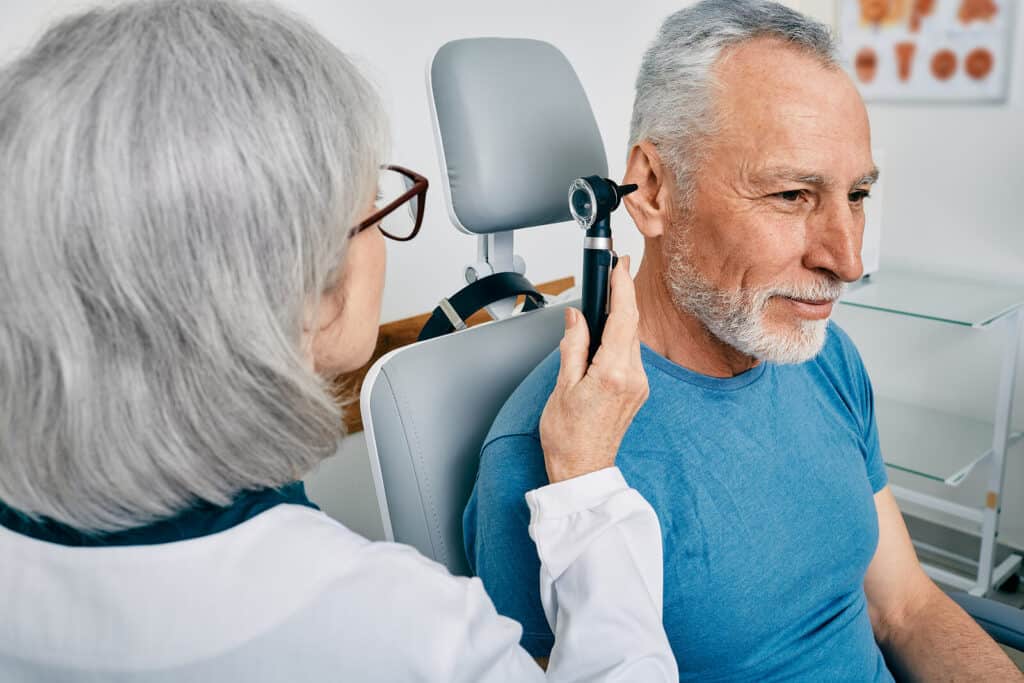Approximately 1 in 10 people in the United States have diabetes. Did you know that 1 in 5 of those people do not realize that they have the condition? With so many people living with undiagnosed diabetes, one of the primary motives of American Diabetes Month is to encourage better testing and knowledge about the condition. The diabetes prevention and treatment community works with doctors and specialists to find ways to get the word out about the condition, but individuals can also advocate for themselves and build their own knowledge. One way to shrink the number of people who have undiagnosed diabetes is to understand other factors that commonly occur with the condition. These other conditions are called “comorbidities,” because they put individuals at higher risk of diabetes. One comorbidity of diabetes might come as a surprise to you: hearing loss. Those who have diabetes are twice as likely to have hearing loss as their counterparts who do not have the condition. Even those who have pre-diabetes are at higher risk, giving that population 30 percent higher risk of hearing loss compared with those who have normal blood glucose levels. Let’s take a closer look at that connection, including what might be happening in the body to link the two conditions. If you find out that you have hearing loss, you can even use that diagnosis as a warning sign of your elevated risk of diabetes. This November, why not honor American Diabetes Month with a hearing test to see if you are one of the people living with undiagnosed diabetes?
Hearing Loss and Diabetes
What happens when a person has diabetes that creates this higher risk of hearing loss? Experts continue to seek answers, but they have a few ideas about what might be happening in the body to create a causal mechanism connecting the two conditions. In the first place, the elevated levels of blood glucose can deprive the ears of the oxygen and other nutrients they need to do the work of hearing. Specifically, the tiny, hairlike organelles of the inner ear called stereocilia are sensitive to fluctuations in blood composition, and a lack of oxygen can cause permanent damage to them. In addition, we know that diabetes can cause blood vessels to break, and the tiny blood vessels near the inner ear are quite fragile. If these blood vessels break, then they can lead to a lack of oxygen, as well. Finally, diabetes has been linked to damage in the nervous system. It is possible that diabetes does not only affect the stereocilia but also the auditory nervous system. These three possibilities might work in combination as a complex mechanism connecting diabetes with hearing loss. As researchers continue to explore how this connection works in the body, we know that the raw numbers of people with diabetes and hearing loss are higher than either condition isolation.
Hearing Testing
With these potential connections in mind, a diagnosis of hearing loss can serve as a warning sign of potential diabetes or pre-diabetes. Although many people have hearing loss without diabetes, your primary care physician might be interested to learn about your diagnosis of hearing loss. That information can be enough to prompt further testing and analysis of your blood glucose levels. You just might find that you are one of those people who is living with undiagnosed diabetes, and the sooner you can get treatment, the better able you will be to manage your condition. The approaches to managing diabetes are advancing all the time, ranging from the classic approaches in diet and exercise to other treatments that involve medication and other medical interventions. Why not schedule your hearing test as a way to honor American Diabetes Month? If you find out that you have hearing loss, you can pass along that information to your primary care physician and mention the correlation with diabetes. In the best case, you will find out that you have normal blood glucose levels, but you also might find out that you need to begin to manage your blood sugar. In either case, the sooner you get a diagnosis of your condition, the better able you will be to manage it.





